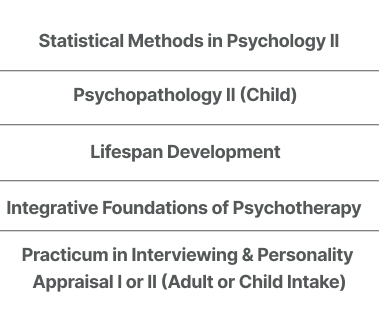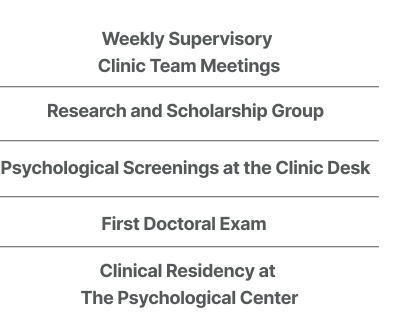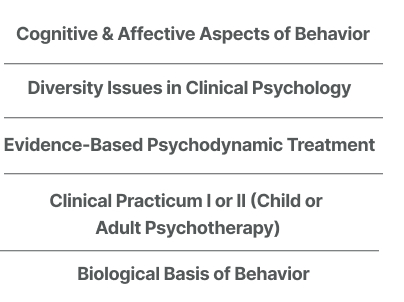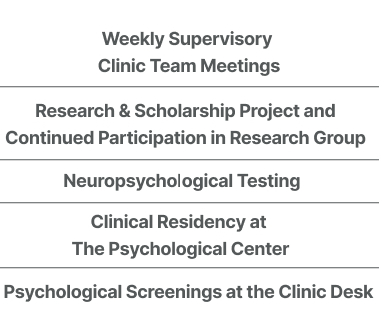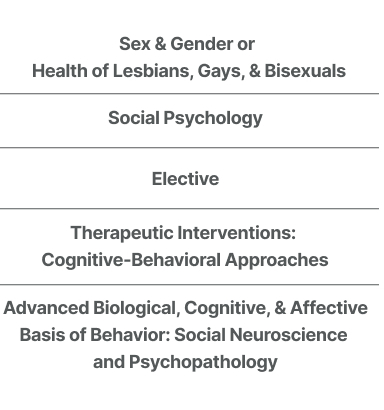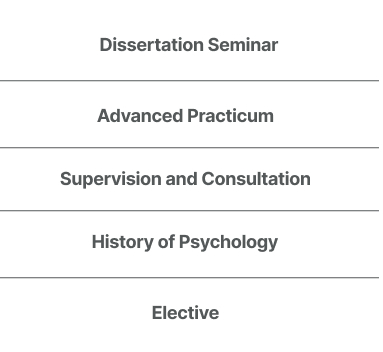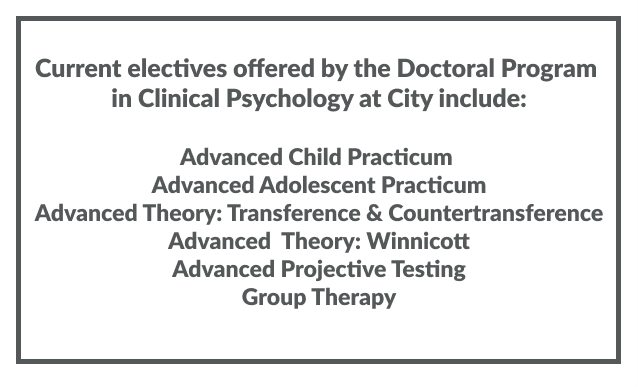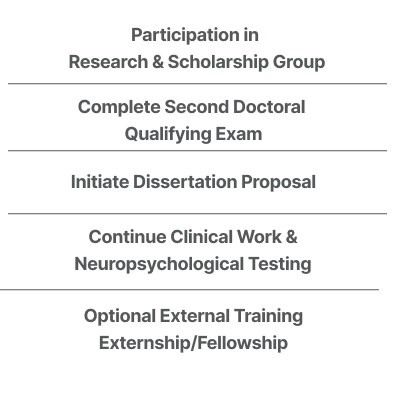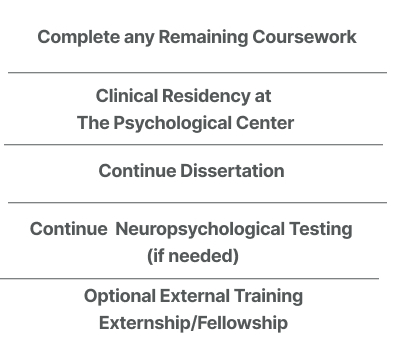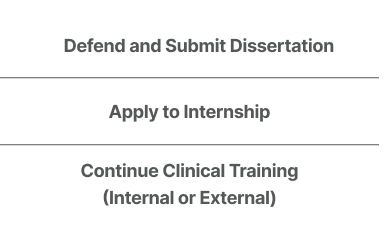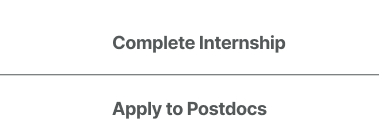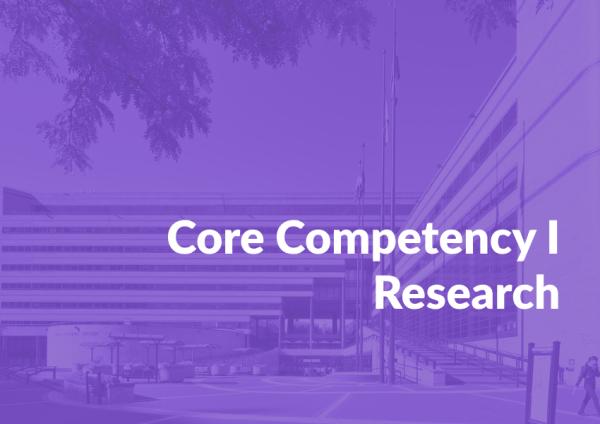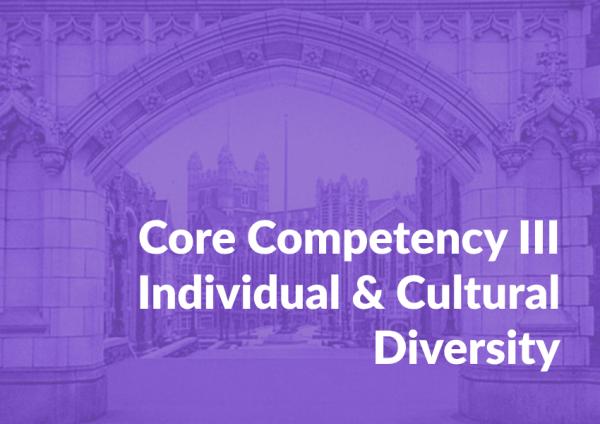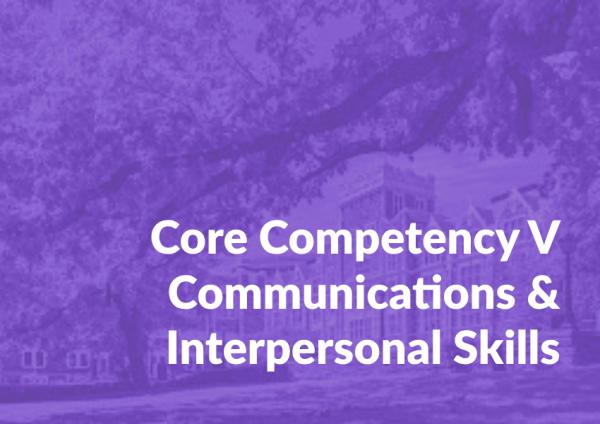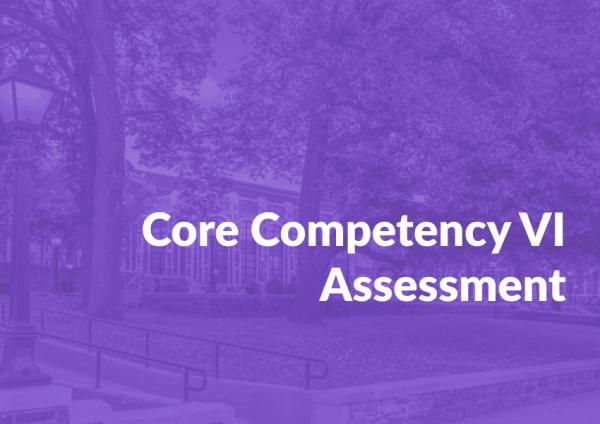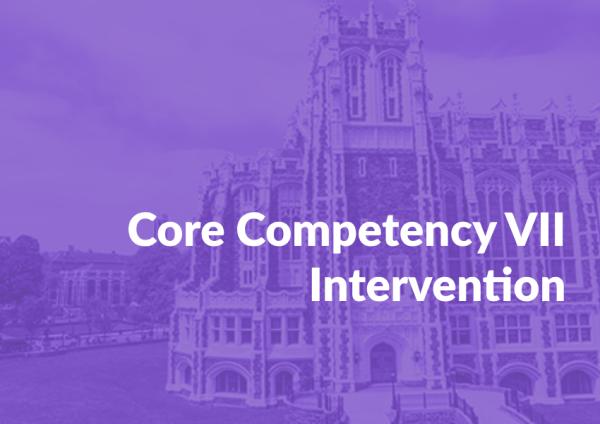Ph.D. Requirements and Competencies

Course requirements for the Ph.D. degree include:
✓ a minimum of 90 academic credits completed within the Doctoral Program in Clinical Psychology (see below for our policy regarding transfer credits)
✓ 500 hours of face-to-face clinical work at The Psychological Center
✓ a year-long internship
✓ a dissertation thesis
The curriculum has broad and general courses as well as treatment-oriented and specialized courses. We offer sequences in research methods, assessment, clinical practical, theory, psychopathology, evidence-based treatments, and diversity & difference. The following is a model course of study that students may adjust depending on individual need.
A note about transfer credits:
Students may transfer up to 15 graduate-level credits (from courses in which they have received a “B” level or above from prior graduate work in Psychology), if the course work is evaluated as equivalent to The Ph.D. Program requirements.
Credit will not be transferred if courses were taken more than five years prior to entry in the Program, or the credit was originally granted for clinical practica, independent research or thesis work. A determination of transfer of credit will not be made until a student has successfully completed at least a semester of coursework in the Program.
Only graduate-level psychology coursework completed in areas that satisfy the broad and general sequence of requirements enable students to place out of similar coursework within the Program (pending the Director and faculty approval). The courses that students may place out of are:
- Social Psychology
- Lifespan Development
- Cognitive and Affective Bases of Behavior
- Biological Bases of Behavior
- History of Psychology
Other transfer credits can be applied to non-required elective coursework. The Director and faculty will consider each student request after determining the rigor and relevance of the syllabus of the masters-level course.





At the end of the Ph.D. program, students will demonstrate knowledge of statistical analysis, research design, and the existing empirical literature in clinical psychology, as well as the implementation of that knowledge in clinical practice and in designing and implementing independent research.
At the end of the Ph.D. program, students will demonstrate knowledge and actions consistent with the APA Ethical Principles of Psychologists and Code of Conduct, relevant laws and professional standards, as well as the ability to recognize ethical dilemmas and to apply ethical decision-making processes.
At the end of the Ph.D. program, students will demonstrate understanding, knowledge and
respect for individual and cultural differences, and of how it impacts their research and clinical work.
At the end of the Ph.D. program, students will behave in ways that reflect the values and
attitudes of psychology.
At the end of the Ph.D. program, students will demonstrate effective interpersonal skills, as well as appropriate and clear nonverbal, written and oral communication skills.
At the end of the Ph.D. program students will demonstrate comprehension and competency in the clinical assessment of cognitive and personality functioning.
At the end of the Ph.D. program students will demonstrate comprehension of and competency in implementing a range of psychotherapeutic interventions in a culturally-competent manner to a range of disadvantaged, diverse populations.
At the end of the Ph.D. program, students will demonstrate knowledge of supervision models and practices and an openness to clinical supervision.
At the end of the Ph.D. program, students will demonstrate knowledge and respect for the roles and perspectives of other professions, and knowledge of consultation models and practices.


The first doctoral examination is an open-book six-question written exam with each question provided by a faculty member who teaches a first-year required course. These essays are read by the Director and scored on a pass/fail basis. The first docs occur in the summer leading into year 2 of the program for students.

The Research & Scholarship Project (RSP) is an empirical study using qualitative and/or quantitative methods that culminates in a poster to be presented at Research and Scholarship Day in November of the second year and a paper due May 1st of a student’s second year. The RSP may involve the development of a research proposal and application for IRB approval of the study(if needed), and to enrich their research experiences, students are additionally encouraged to submit their RSP to either professional conferences (as a poster or paper presentation) or as a journal article. Thus, the RSP and poster presentation affords an opportunity to evaluate how well students have applied the research skills learned and developed in related coursework and in the RSG.

The Second Doctoral Qualifying Examination involves preparing a 35-40 page case analysis and presenting this paper in both written and oral formats. This assessment requires students to provide a clear and detailed case history and diagnostic conceptualization; to integrate theory and empirical research relevant to case conceptualization and treatment; and to examine diversity and ethical issues that arise in the provision of patient care.

Completion of the dissertation constitutes the final step in the academic sequence of our training Program. Dissertations may be quantitative, qualitative, or mixed method. The student works closely through the proposal, data collection, analysis, and completion stages of the dissertation with a three-member committee. Completion of the dissertation is the capstone project by which we evaluate research and scholarship competencies. Students must demonstrate mastery of implementing an independent research or scholarly project, analyze the results independently, and integrate their results with the existing literature. The completed study is presented as a written document and as an oral presentation open to the community prior to graduation.

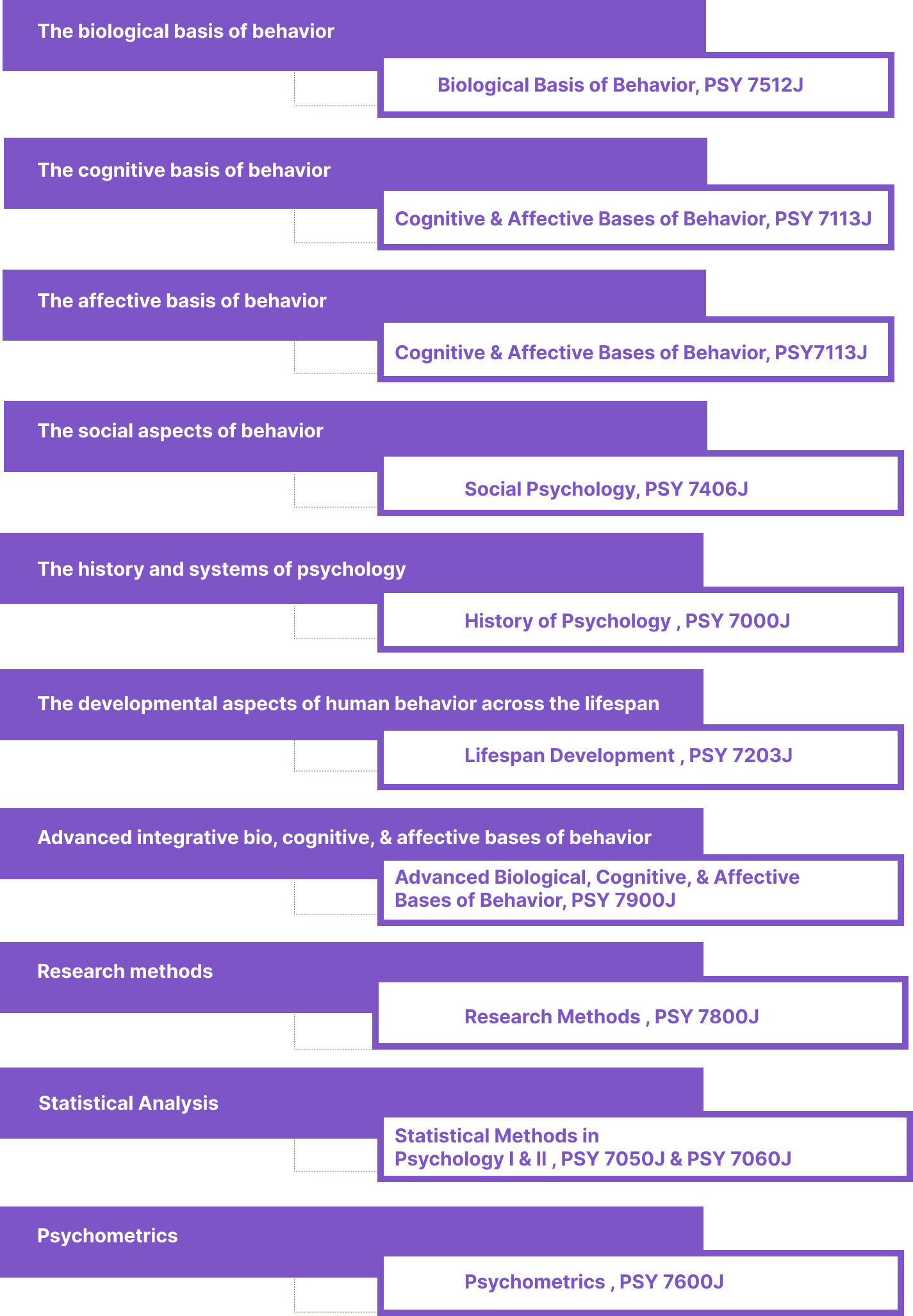
Last Updated: 08/27/2025 12:38




